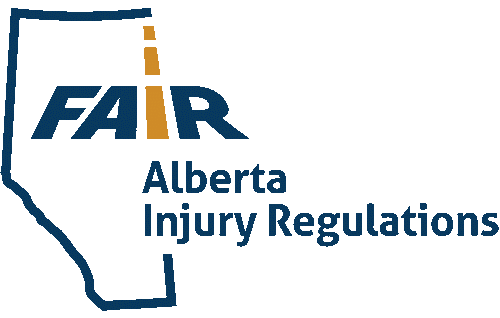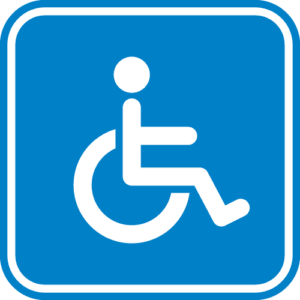Today I want to write about advances on settlement funds in motor vehicle accident cases. This blog is a summary of my experience and the case law interpreting the section 581 advance under the Insurance Act, and my paper presented for the Alberta Civil Trial Lawyers Association Seminar (ACTLA), “Common Uncommon Issues in Personal Injury Claims” October 23, and 25, 2017. For the full paper, please contact A.C.T.L.A.
By nature of this practice, I see many people who, due to their injuries in a motor vehicle accident, are unable to work. They have significant financial obligations to keep up with. A person may not have access to Section B benefits or any private insurance policy. Maybe employment insurance benefits are unavailable or have run out. A person may not have the financial wherewithal to pay for the rent, mortgage, groceries, insurance, medications, or medical treatment. The trial is 5 years away or more.
This is a tragic situation. The person needs to survive. She may be selling her property. She may be getting loans from third party lenders with high interest rates. She may be borrowing money from friends and family members. She may be living alone with no one else to rely on for support. Her utility bills will be in arrears. Unquestionably, her income is vastly much less than her expenses.
Due to the enormous pressure placed on the injured person, she ponders settling her claim now for 1/10th of what she could get upon settlement or trial of the action, just to avoid living on the street, to pay for the much needed medical expenses, medical treatment, and basic survival needs.
Section 581 of the Insurance Act
This section allows a plaintiff to receive an advance of insurance funds before the settlement or trial of her action. At minimum, the insurer will want to know if:
- You have enough medical evidence to support the amount you are asking for;
- You have financial need;
- The defendant is liable to you for at least the amount you are requesting.
Factors that influence this:
- The stage of litigation;
- Whether medical reports have been disclosed;
- Whether questionings have been conducted.
There are two ways to obtain the money from the insurer. The first one, and the most simple, is provide the insurer the information outlined above and simply ask for it. The second and more probable way is to make an application to Court forcing the insurer to pay the advance settlement. The first way is simpler, quicker, but less likely. The second way is slower and involves plenty of hard legal work. The procedural reality of civil litigation in Alberta is that it will take at least 6 months to schedule a Court application.
In the meantime, here are some things that are likely to happen.
- An extensive, detailed, affidavit must be prepared an sworn by the applicant;
- The applicant will likely be cross-examined on it;
- A supplemental affidavit will be required and the applicant will likely be cross-examined on it;
- A brief will be provided for the Court including the appropriate legal test, summary of relevant case law, and an explanation of how the applicant’s case fits within it.
The legal brief and argument will need to establish, on a balance of probabilities, that:
- The Defendant is probably liable to the plaintiff for the amount requested (or more);
- Without the advance payment, the plaintiff is likely to go without necessities (or things broadly analogous), or unlikely be able to prosecute his or her claim for damages;
- The risk of overpaying does not exceed the plaintiff’s likely loss without the advance payment;
Once the Court is satisfied that the above pre-conditions are met, it will go on to determine whether any terms and conditions should be imposed on the applicant to mitigate the defendant’s risk. A covenant to repay the amount of the advance is the most common. Installment payments or lump sum payments are both options for the Court to consider.
Tying s. 581 Payments to Steps in the Litigation
Tying s. 581 payments to steps in the litigation is clearly inappropriate and would defeat the objective and purpose of S. 581. The reality of personal injury litigation is that the defense can delay the litigation, and accordingly, the payment of the installment to the plaintiff. Nothing under Section 581 suggests that the defendant can control the steps procedurally by which payments should be made.
Contributory Negligence
Contributory negligence can raise a problem. However, if the quantum (amount of money) payable would not cause the insurer to overpay (even in light of the contributory negligence issue) an applicant can still succeed. An example would be if the applicant sustained a subsequent slip and fall after the motor vehicle accident, and the quantum payable in the lawsuit for the motor vehicle accident far exceeded the amount being requested for an advance.
The Content of the Affidavit
The affidavit will need to satisfy the Judge that liability is not in issue. It should provide a historical view of the plaintiff’s economic situation from just before the injury was sustained up to the present day. It should provide evidence of:
- all income, and all expenses;
- loans from third party lenders, friends, family;
- selling of assets;
- rent;
- groceries;
- insurance;
- medical costs, with as much detail as possible;
- any other evidence supporting the overall cost of living;
- medical reports supporting pecuniary damages;
- the insurable limits of the defendant.
The brief should include:
- a summary of the relevant legislation and case law;
- references to case law where damages for pain and suffering have been awarded for similar injuries.
The Importance of Additional or Supplemental Affidavit Evidence
It takes six months or longer to get into a Special Chambers Application by Originating Application. A supplemental affidavit is beneficial to show how the plaintiff’s financial situation has deteriorated since the application was brought. The applicant may have needed $50,000 six months ago, but in the past six months there have been additional financial restraints. This can justify a Court awarding a higher advance. Asking for a higher advance would be appropriate taking into account the plaintiffs financial circumstances from the filing of the application to the date of the hearing. This may require you to look into a crystal ball.
Trial Grade Evidence
Trial grade evidence is not required for a s. 581 advance payment. A Judge must be able to reach a fair and just determination of the merits of the application. The record must allow the Judge to make the necessary findings of fact. The Alberta Court has stated that it must ensure that it’s not unfair to plaintiffs by demanding evidence suitable for trial long before the trial, and, it wouldn’t be proper to run the trial before the trial is run.
Conclusions
Obtaining an advance on settlement is a viable option for those injured in motor vehicle accidents. Each case is fact specific. To determine if your case would be suitable for an advance on settlement funds, contact Joseph A. Nagy directly to discuss the circumstances of your case.








